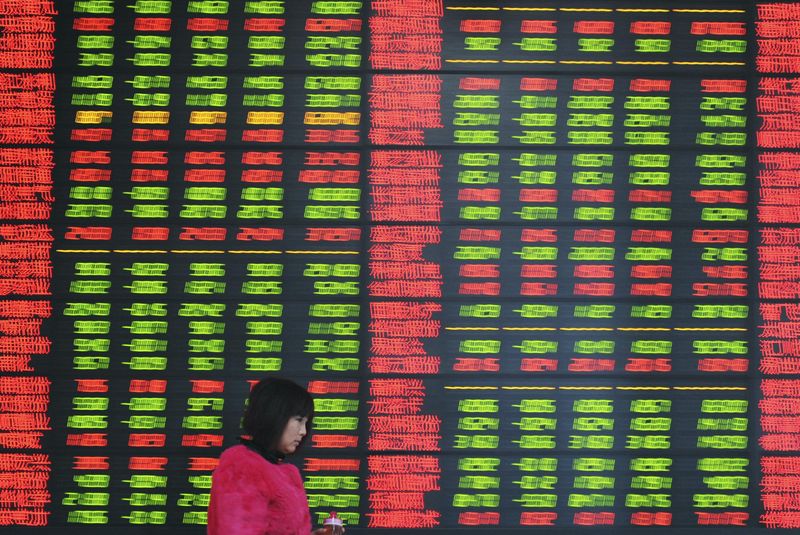Asia stocks buoyed by tech gains; trade, economic uncertainty persists

Most Asian stocks rose on Tuesday with regional technology shares tracking some strength in their U.S. peers, although investors remained largely on edge over U.S.-China trade ructions and soft economic conditions.
Regional markets took some positive cues from a stronger overnight close on Wall Street, with tech and energy stocks leading gains. But Wall Street’s momentum was seen fading into the Asian session, with S&P 500 Futures falling 0.3% in regional trade.
Chinese markets resumed trade after a long weekend but largely tread water amid signs of deteriorating Sino-U.S. relations. South Korean markets were closed for the presidential election.
Asia tech tracks US gains
Tech-heavy Asian bourses were among the better performers for the day, with Japan’s Nikkei 225 up 0.3%, while Hong Kong’s Hang Seng index soared 1.2%. The Hang Seng also recovered from recent losses.
Tech benefited from a dip in U.S. Treasury yields, amid some signs of stability in the bond market, while buying into major chipmaking stocks, on sustained bets of strong artificial intelligence demand, also helped.
Taiwan’s TSMC (TW:2330) rose 1% after CEO C.C Wei said increased trade tariffs would have some impact on the company, but this was likely to be offset by strong AI demand.
In Hong Kong, shares of Chinese electric vehicle giant BYD Co (HK:1211) rose nearly 2%, and were on track to snap six consecutive days of losses after it reported upbeat sales for May, especially in overseas markets. The stock was battered last week after BYD slashed prices on several of its models, raising concerns over a worsening EV price war and pressure on margins.
EV rival Li Auto (NASDAQ:LI) Inc (HK:2015) surged nearly 5% and was the top performer on the Hang Seng after Goldman Sachs hiked the firm’s price target on Monday.
Chinese stocks rangebound, US tariffs in focus
China’s Shanghai Shenzhen CSI 300 and Shanghai Composite indexes moved in a tight range on Tuesday after a long weekend.
Trade relations between Beijing and Washington were strained over the past week after U.S. President Donald Trump accused China of violating a recent trade deal, accusations which China “firmly rejected” on Monday.
Still, Trump’s administration signaled that trade talks with China had stalled, denting hopes for a permanent trade deal between the two countries. They had in May agreed to temporarily slash their respective trade tariffs.
Private purchasing managers index data released on Tuesday underscored the economic impact of U.S. tariffs on China. The Caixin manufacturing PMI unexpectedly shrank in May, as overseas orders dried up due to high tariffs.
The reading came just days after government PMIs also showed a similar trend.
Broader Asian markets were marginally higher, but bigger gains were limited by sustained concerns over trade tariffs and worsening global economic conditions.
Australia’s ASX 200 rose 0.3% after the minutes of the Reserve Bank’s May meeting largely reiterated the central bank’s dovish outlook. The RBA had cut rates by 25 basis points in May.
Other Australian data also showed weakness in the economy. Company gross operating profits unexpectedly shrank 0.5% in the first quarter, while the country logged a bigger-than-expected current account deficit.
The readings come just a day before first-quarter gross domestic product data from the country.
Singapore’s Straits Times index rose 0.1%, while Gift Nifty 50 Futures for India’s Nifty 50 index pointed to a soft open. The Reserve Bank of India is set to decide on interest rates later this week, with markets expecting a 25 basis point cut.





